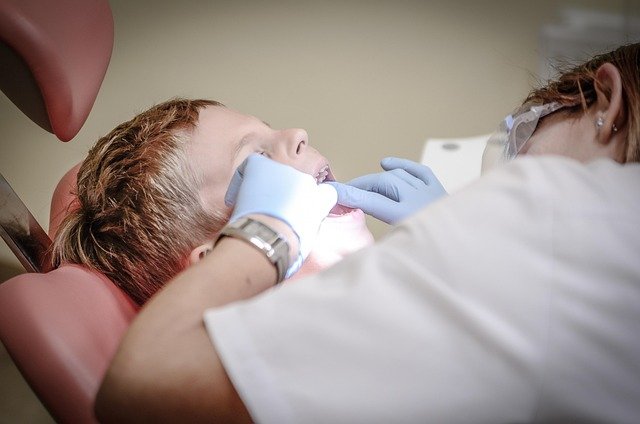Full Mouth Dental Implants Australia vs Overseas
Looking at full mouth dental implants and wondering whether to stay in Australia or travel overseas for savings? This guide compares typical costs in Australian clinics versus popular international destinations explains factors that affect price and quality such as implant type surgeon experience and lab fees and outlines travel logistics aftercare warranty and financing options so you can make an informed choice.

Full mouth dental implants represent a substantial investment in your oral health and quality of life. With significant cost differences between Australian and overseas providers, many patients consider dental tourism as an alternative. However, the decision involves much more than comparing price tags. Understanding the complete picture—including quality standards, aftercare requirements, travel considerations, and financial options—is essential before committing to treatment either locally or abroad.
Typical Australian Costs and Fees
In Australia, full mouth dental implant procedures typically range from $25,000 to $50,000 per arch, with complete upper and lower jaw restoration potentially costing between $50,000 and $100,000. These fees generally include initial consultations, imaging and diagnostics, surgical placement, temporary prosthetics, and final restoration. Australian dental specialists often charge higher fees due to stringent regulatory requirements, advanced training standards, and the use of premium materials from reputable manufacturers. Additional costs may include bone grafting procedures, sinus lifts, or preparatory extractions, which can add several thousand dollars to the total. The higher investment reflects not only the expertise of Australian-trained specialists but also the comprehensive aftercare and warranty protection typically included in treatment packages.
Popular Overseas Destinations and Price Ranges
Dental tourism destinations such as Thailand, Malaysia, India, Turkey, and certain Eastern European countries advertise full mouth dental implant packages at substantially reduced rates. Prices in these locations typically range from $8,000 to $25,000 for complete treatment, representing potential savings of 50-70% compared to Australian costs. Thailand and Malaysia are particularly popular among Australian patients due to their proximity, established medical tourism infrastructure, and English-speaking practitioners. Turkey has emerged as a competitive option with modern facilities and aggressive pricing. However, these advertised prices may not include all necessary procedures, follow-up visits, or complications management. Patients should carefully review what is included in quoted prices and factor in multiple trips, accommodation, and potential revision costs.
| Treatment Location | Estimated Cost Range (Full Mouth) | Typical Inclusions |
|---|---|---|
| Australia | $50,000 - $100,000 | Consultation, surgery, implants, prosthetics, follow-up care, warranty |
| Thailand | $12,000 - $25,000 | Surgery, implants, temporary prosthetics, limited follow-up |
| Malaysia | $10,000 - $22,000 | Implant placement, prosthetics, basic aftercare |
| Turkey | $8,000 - $18,000 | Implants, crowns, initial consultations |
| India | $8,000 - $15,000 | Surgical procedures, materials, short-term follow-up |
Prices, rates, or cost estimates mentioned in this article are based on the latest available information but may change over time. Independent research is advised before making financial decisions.
Quality Risks Warranty and Aftercare
Quality assurance represents one of the most significant concerns when comparing Australian and overseas dental implant treatment. Australian dental practitioners must adhere to strict regulations enforced by the Australian Health Practitioner Regulation Agency and maintain registration with the Dental Board of Australia. They use implants approved by the Therapeutic Goods Administration and follow rigorous sterilization and safety protocols. Overseas clinics vary widely in their standards, with some matching or exceeding Australian quality while others may cut corners to maintain low prices. Warranty coverage differs substantially: Australian providers typically offer comprehensive warranties covering implant failure and complications for 5-10 years, whereas overseas warranties may be limited, difficult to enforce from Australia, or require returning to the original country for remedial work. Aftercare is particularly problematic for dental tourists, as the critical healing period and any complications occur after returning home, potentially requiring expensive intervention from Australian dentists unfamiliar with the original treatment.
Travel Logistics Recovery and Legal Issues
Full mouth dental implant procedures require multiple visits over several months, creating significant logistical challenges for overseas treatment. Initial consultations, surgical placement, healing assessments, and final restoration typically span 3-6 months, necessitating either extended stays abroad or multiple international trips. Recovery from implant surgery requires rest and careful monitoring, making long-haul flights immediately post-procedure uncomfortable and potentially risky. Complications such as infections, implant failure, or poor integration may not become apparent until after returning to Australia, requiring emergency local intervention at additional cost. Legal recourse presents another major concern: Australian consumer protection laws and professional liability standards do not apply to overseas providers, leaving patients with limited options if treatment fails or causes harm. Medical malpractice claims across international borders are complex, expensive, and often impractical to pursue.
Financing Payment Plans and Insurance Tips
Many Australian dental practices offer financing options to make full mouth dental implants more accessible, including payment plans through providers like Zip Money, Afterpay, or specialized medical finance companies. These arrangements allow spreading costs over 12-60 months, often with interest-free periods or competitive rates. Private health insurance in Australia typically provides limited coverage for dental implants, as they are often classified as major dental work with annual caps and waiting periods. However, some policies may cover portions of associated procedures like extractions or consultations. Patients considering overseas treatment should verify whether their insurance provides any international coverage and understand that most Australian health funds do not cover complications arising from overseas dental work. Comparing the total cost including financing charges against overseas options with travel expenses provides a more accurate financial picture. Some patients find that Australian payment plans make local treatment surprisingly competitive when accounting for multiple trips, accommodation, time off work, and complication risks associated with dental tourism.
This article is for informational purposes only and should not be considered medical advice. Please consult a qualified healthcare professional for personalized guidance and treatment.




